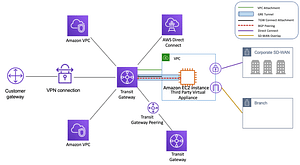Cloud computing has revolutionized the way businesses operate, providing access to a range of on-demand resources, including storage, computing power, and software applications. Among the leading cloud providers is Azure, Microsoft’s cloud platform that has gained widespread popularity among businesses of all sizes.
As businesses continue to embrace cloud computing, Azure and other cloud providers are poised to play a significant role in shaping the future of this technology. In this blog, we’ll take a look at some of the key trends and predictions surrounding Azure and the future of cloud computing.
One trend that has gained significant traction in recent years is the rise of hybrid cloud computing. Hybrid clouds allow businesses to take advantage of both on-premises and cloud-based resources, providing a level of flexibility and scalability that traditional IT infrastructure cannot match. Azure is well-suited for hybrid cloud deployments, thanks to its ability to seamlessly integrate with on-premises resources and provide a range of cloud-based services.
Another trend that is set to shape the future of cloud computing is the growing adoption of edge computing. Edge computing involves bringing computing power closer to the end user, allowing for faster processing and reduced latency. Azure has been quick to embrace this trend, with its Azure Edge Zones offering businesses the ability to deploy Azure services in locations close to their customers. This is especially useful for businesses that require low latency, such as those in the gaming and video streaming industries.
Another key trend that is set to shape the future of cloud computing is the increasing use of artificial intelligence (AI) and machine learning (ML). Azure has a range of AI and ML services that businesses can leverage to gain insights, automate processes, and improve decision-making. These services are expected to become increasingly important as businesses seek to gain a competitive edge through the use of data-driven technologies.
A final trend that is set to shape the future of cloud computing is the growing importance of security. As businesses continue to store and process sensitive data in the cloud, security is becoming a top concern. Azure has a range of security measures in place, including encryption, access controls, and threat protection, to ensure that businesses’ data is secure.
In conclusion, Azure and the future of cloud computing are closely intertwined. As businesses continue to embrace cloud computing, Azure and other providers are poised to play a significant role in shaping the future of this technology. Some of the key trends that are expected to shape the future of cloud computing include the rise of hybrid clouds, the adoption of edge computing, the increasing use of AI and ML, and the growing importance of security. As these trends continue to evolve, Azure and other cloud providers will be well-positioned to meet the changing needs of businesses around the world.












One Response